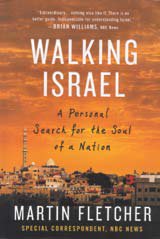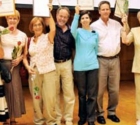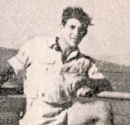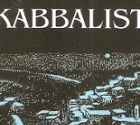
WALKING ISRAEL
By Martin Fletcher
Thomas Dunne Books, St. Martin's Press, 2010.
$25.99. 305 pp.
The travel book written from the point of view of an observer walking around the country is a familiar genre, popularized particularly successfully by Bill Bryson. Often, it takes the form of the writer commenting humorously on the quaint habits of the natives – rather like looking at animals in a zoo.
Walking Israel by Martin Fletcher is different. Fletcher, a former NBC Bureau Chief in Tel Aviv and an award-winning foreign correspondent for three decades, is almost as familiar with Israel as any native. In this absolutely fascinating, compulsively readable book, his personal hike of discovery along the coastline from the Lebanon border to Gaza is not so much observation of Israel from the outside as much as a jumping-off point for exploring some big issues and questions: What do Israeli Arabs really think of Israelis? How do young conscripts think about the IDF today and how does this affect our future? Why is the Holocaust so central to Israel, and yet Holocaust survivors treated with such lack of empathy? Why are kibbutzim experiencing a revival today, and what price has been paid for their newfound success?
Fletcher is a terrific writer, funny and clear-sighted. Literally and figuratively, he follows wherever his interviews take him, on a meandering path to some kind of understanding of this "quirky, surprising, complex, difficult and disturbing country" which, he finds, is actually "a fascinating place, more diverse, energizing and dynamic than anything the international press publishes."
Here is his characterization of Israelis, for example: "They're a noisy bunch, gregarious and excitable, spontaneous and combustible, a vivid mix of the orient and the occident – hummus meets kartoffelsalat. They're also a bunch of contradictions: selfish and generous, bigoted and tolerant, arrogant and – well, maybe not so humble. The only accurate generalization is that they are in my opinion, the worst drivers in the world." Who can argue with that?
One example of the way he tackles thorny subjects, based loosely on his walk from Achziv to Kibbutz Lohamei Haghetaot, is the role of the Holocaust in Israeli history and in Israel today. In Nahariya he meets Smadar Haran, who, in 1979, suffered one of the most harrowing terrorist attacks one can ever imagine. Terrorists landed from the sea and killed her husband and four-year-old daughter, while she hid in a crawl space and inadvertently smothered her two-year-old daughter. In a horrible irony, Smadar's mother was a Holocaust survivor who herself hid from the Nazis in a small hole.
So what happened to Smadar? She remarried and moved on. Today, she says that she is not anti-Arab; her revenge and her mother's was to build a family and a life, and Fletcher notes that in his meetings with Holocaust survivors, this is a common thread. He says, "Surely this is the strength of the nation. Holocaust survivors thirsted not for further brutality against the perpetrators, but for life."
But that is not the end of it. It's well known that after the war the Holocaust was a taboo subject and survivors were suspect because their perceived weakness negated the collective image of the new, fearless Israeli, and this lasted until the Eichmann trial in 1961. To this day, though Israelis make a big deal of Holocaust remembrance and schoolchildren visit the camps, many survivors still live in trauma and poverty, forgotten. Does this not challenge the myth of Israel's moral superiority?
If there is a common thread to the various themes he explores, it is that there are two sides, at least, to every question. He visits the Hassan Bek mosque and the IZL Irgun Zvai Leumi (Etzel) Museum; he talks to Gush Katif settlers, Israeli Arabs and Avigdor Lieberman supporters. If there is a symbolic representation of what he finds, it is the four-sided clock in Acre, which has four faces, with numbers in Arabic, Hebrew, Roman and Indian. Says the guide who points it out, "Whose truth are you seeking? It just depends on where you stand!"
Not all parts of the book are as thought-provoking. Nothing much is added, for example, by Fletcher's description of a night out in Tel Aviv, attempting to relive his youth in night clubs, or his flirtation with a woman he meets on the beach. In fact, the personal bits are much less interesting than his insights, which are fresh and revealing.
Unlike so many other writers on Israel, Fletcher has no agenda – neither to defend Israel nor to attack it. On his journey up and down the coast, he sees what goes on, much of it ugly. And yet, he sees the other side too. As he puts it, ".. relentless insistence on Israel's faults, rather than fair recognition of its virtues, has increasingly legitimized a question that applies to no other country on the planet: does Israel have the right to exist? This book offers an unequivocal answer: Yes. Despite the injustice and violence we all hear about, I hope the reader will agree that the good outweighs the bad, and indeed that the good can overcome the bad, to create a country that all Israelis, Jews and Arabs, can be proud of."
 AMIT DRESSLER - HELPING THE LESS FORTUNATE
AMIT DRESSLER - HELPING THE LESS FORTUNATE ESRA VOLUNTEER AWARD WINNERS 2010
ESRA VOLUNTEER AWARD WINNERS 2010 FACT OVERWHELMS FICTION
FACT OVERWHELMS FICTION Robert Kwong at the Yeshiva
Robert Kwong at the Yeshiva  Friday Night with the Pope - A Book Review
Friday Night with the Pope - A Book Review The Kabbalist - A Book Review
The Kabbalist - A Book Review  Carol Novis
Carol Novis